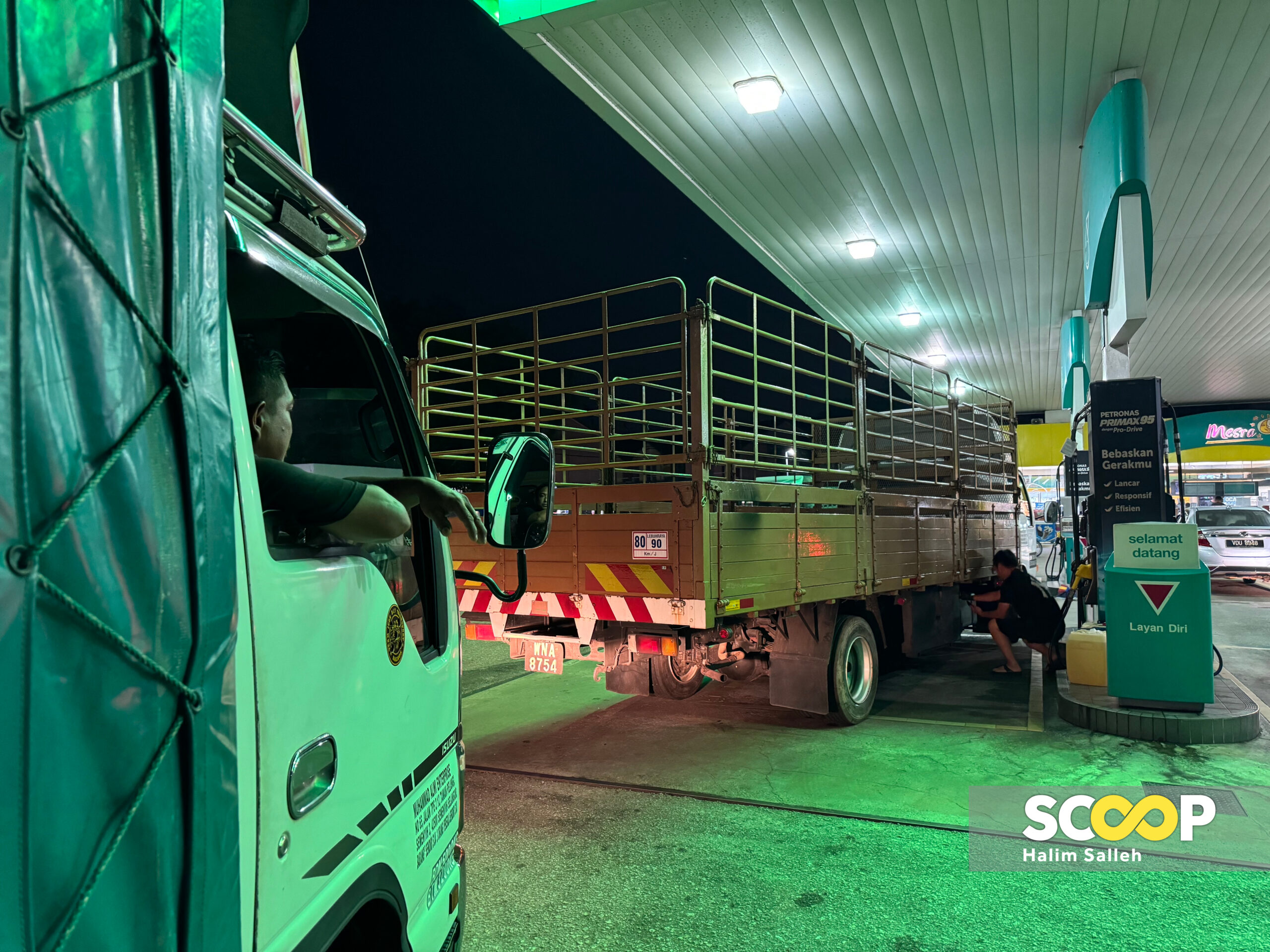KUALA LUMPUR – The removal of the diesel subsidy in the peninsula has left private vehicle owners grappling with higher costs, whether their vehicles are for personal use or business purposes.
Siti Nur Nashrah Md Ghazali, 26, said she was caught off guard by the removal of the subsidy, having only just started using a Nissan Navara pickup.
“The removal was sudden, and I did not have time to prepare for it. Before the removal of the subsidy, to fill up a full tank it was only RM160, now it is more than RM200, which is a very great hike upwards.

“Considering I am only a freelancer, so my income is quite inconsistent, it has been a struggle to accommodate the higher prices.
“I prefer to opt for public transport nowadays than driving the pickup,” she said.
She also said that she did not apply for the Budi Madani programme, which offers RM200 monthly cash aid to private diesel vehicle owners.
She explained that since the car was registered under her mother’s name and considering her career and salary, her application would likely have been rejected.
The Budi Madani cash assistance was introduced for private diesel vehicle owners after the government set the retail price of diesel at RM3.35 per litre in Peninsular Malaysia, effective June 10. The subsidised price of RM2.15 per litre remains in Sabah, Sarawak and Labuan.
Meanwhile, Kesava Rao K., 48, who works in logistics, uses his Mitsubishi lorry to transport items such as printers, toners and paper.
He said he was now spending significantly more on fuel since the diesel subsidy was removed.
“The removal of the subsidy is completely unfair, and it is infuriating. It used to cost around RM60 a day to refuel my truck, now it can reach up to RM100 a day,” he said.
He also said applying for the Budi Madani programme was a hassle.
“It is very troublesome (to apply), the RM200 is definitely not sufficient, and now I’m trying to apply for the fleet card from the Domestic Trade and Cost of Living Ministry.”
The fleet card to buy diesel at subsidised prices is available for 33 types of vehicles used in the public land transport and logistics sector, and is a move aimed at preventing price hikes in essential goods and services.
However, Kesava said despite this being the intention, he felt he was paying more for groceries since the diesel subsidy was removed.
“I’m noticing increases in the price of goods. For example, the price of chicken has had a slight increase. Prices in cafes and restaurants have also significantly increased.
“I have had to cut out the number of times I take my family to go eat out,” he said.

Contractor Ezuan Abdul Kadir, 51, took issue with the spiralling effects of the diesel price hike, especially in his line of work.
He also claimed there was a lack of transparent communication by the government before removing the diesel subsidy.
“I was very surprised (by the removal of the subsidy), there was no prior explanation to the people to justify the reasons why the price of diesel will be rising, especially during a time when many Malaysians are struggling with the rising costs of living.
“I was able to receive cash aid from Budi Madani… but I am still concerned about the potential increase in rental prices for machinery like bulldozers and excavators, which is particularly troubling for someone in my line of work as a contractor,” he said.
Engineer Muhammad Amir Rosly, 36, said he now spent about RM250 to fill up his diesel vehicle, whereas before the subsidy removal, he spent RM160.
He also felt prices of food and materials had all increased as a result.
“The day after the diesel subsidy was removed, my friend who sells burgers informed me that the price of meat had increased by 20 sen.”
Finance Minister II Datuk Seri Amir Hamzah Azizan has said the subsidy rationalisation programme for diesel should have a neutral impact on the prices of goods, and businesses should not use the diesel price hike as a reason for raising their prices. – July 29, 2024


